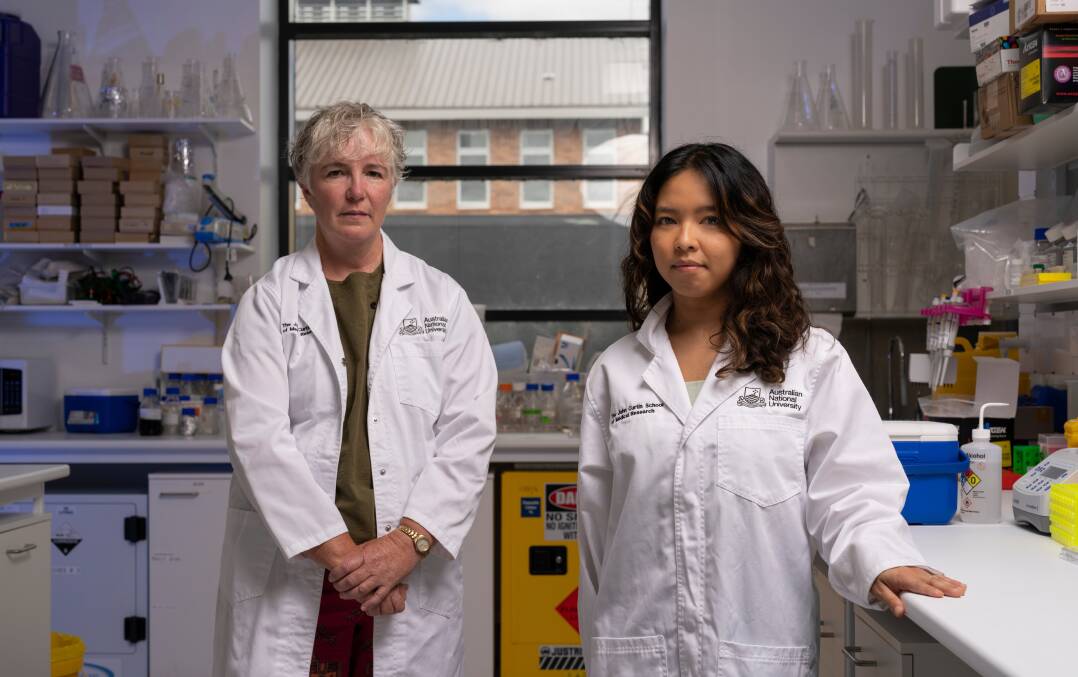Researchers from the Australian National University have discovered what causes psoriasis, a skin disease causing red, dry or itchy skin.
The team of scientists have found a gene mutation causes the condition, and if there are two copies of the mutated gene a person can develop psoriatic arthritis.
It is the first time scientists have been able to determine how the skin-only disease can turn into a joint disease.
For sufferers like Rebecca Davey, the research findings give hope of leading to improved diagnosis and treatment.
"People don't understand the debilitating effects these conditions can have on the individual - and in fact a whole family - when someone is in constant pain, has poor sleep from pain and feels constantly fatigued," she said.
Ms Davey, who is also the chief executive of Arthritis ACT, often wakes up in extreme pain of a morning and she had to give up nursing as the constant handwashing would cause her skin to flare up. While medicine has helped to clear up larger outbreaks on her skin, she does have to take great care.
"You do have to consider everything you put on your skin and the fabrics you wear," she said.
Through studies on mice, ANU researchers were able to isolate the gene that causes psoriasis and were able to determine that if there were two copies of the mutation, known as IKBKB, this would develop into psoriatic arthritis.
ANU researcher Chelisa Cardinez said the abnormality occurred in a group of cells known as regulatory T cells.

"These cells are normally considered gatekeepers of the immune system. However, we found that this mutation alters the function of these cells, causing them to contribute to inflammation and promote the onset of disease," she said.
Arthritis Australia estimates three out of every 10 Australians with psoriasis develop psoriatic arthritis. There are about 500,000 people with psoriasis. The condition can often take a while to be diagnosed.
"I had no idea what was causing my hands to flare up all the time. Our poor GPs often don't recognise these conditions early," Ms Davey said.
"In regional and rural areas there is a drastic shortage of specialists both in dermatology and rheumatology to diagnose and treat these conditions, and people can wait over a year for an appointment if their conditions are less dramatic."
Dr Cardinez said delays in diagnosis are linked to poorer outcomes and she said the findings would bring researchers closer to finding a cure for the condition.
"Studies have shown that delays in psoriatic arthritis diagnosis is linked to worse clinical outcomes for patients. Therefore, earlier detection and treatment of these immune diseases is key to improving health outcomes," she said.
"By developing a better understanding of the IKBKB gene and the role it plays in promoting the onset of these diseases it would bring us a step closer to one day finding a cure, which would offer new hope for hundreds of thousands of Australians."







